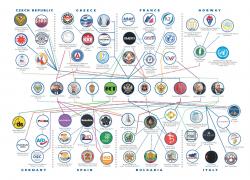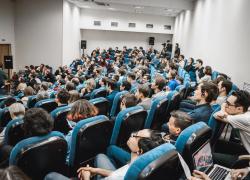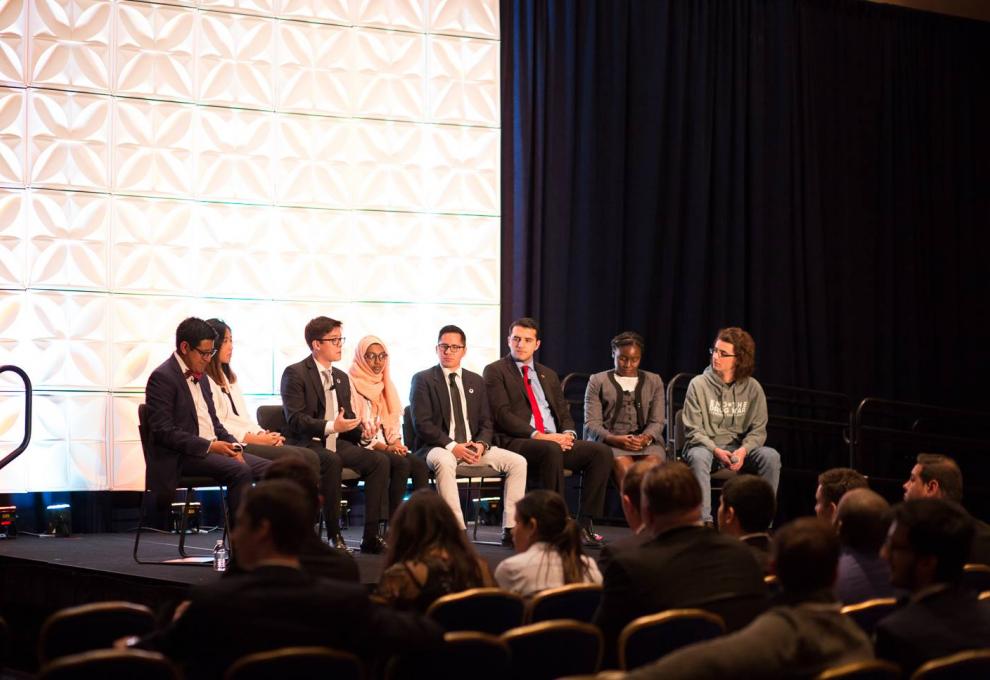Let's Globalize Our People
“What I propose is to make universal what today belongs to a privileged minority. Let’s empower our people, by giving them not only the access but also the necessary tools to join the globalized world and, therefore, the process of economic development.”
Each era has its own theme. Just as in the 1990s people used to talk about the supposed end of communism and how the fall of the Berlin Wall would bring years of peace and progress, today it is fashionable to talk about the de-globalizing effects of the pandemic. That is, how the pandemic will supposedly end up undermining the current international order, an order that seeks to deepen the interdependence of our nations, economically, culturally and politically.
In this "deglobalization theory," the main argument is that the pandemic has changed the political preferences of numerous countries, as well as the relationship that these countries have with the international system. For example, there is a tendency to argue that the pandemic will end up strengthening the popularity of certain leaders eager to close borders, governments reluctant to cooperate with international organizations, and electoral groups skeptical of international trade.
If such a scenario is considered true, our future as a society would not be particularly encouraging. Globalization, as we know it, has been a true blessing to millions of people. Especially for the hundreds of millions of Asians who have risen out of poverty thanks to international trade between the West and their respective countries.
Fortunately, I think that deglobalization theorists tend to be prisoners of the moment. I think that they tend not only to overestimate the isolationist desire of certain countries but also underestimate the force with which the globalization process is coming in the world.
For example, regardless of any push to close borders, the world today is more interconnected than ever. By this I am not only referring to social networks and instant messaging, but also to the large number of people who work online for companies that are located thousands of miles away.
In this sense, the pandemic is not leaving us with a less globalized world, but on the contrary, it is leaving us with a world in which teleworking will be the norm, not the exception. The same will happen with education and even with health. Technology will end up achieving what diplomacy could never achieve: to erase our borders, those that have done nothing but divide one another, condemning us to countless wars, preventing the integration of our peoples.
The globalization of work; that is our future. A future in which labor markets will have no borders, thus increasing the productivity of our workers. A future in which we can work from home, finally achieving that much desired balance between work and family well-being. A future where we can reduce our CO2 emissions, giving our much-battered planet a break.
Therefore, my invitation is to democratize globalization, to dedicate all our efforts to make sure that globalization reaches those who need it most in our still underdeveloped continent, an American continent sadly still full of xenophobia, demagoguery, and neo-Marxism.
My invitation is to finally integrate the peoples of our America, peoples that for the most part share the same religion, language, and culture. Peoples that only united will be able to leave third world, and the underdevelopment that comes with it.
What I propose is that we commit ourselves to making universal what today belongs to a privileged minority, from access to a quality internet to the possibility of learning a second language. Since these are not luxuries (as is commonly believed), these are fundamental rights for the self-realization of our peoples. For example, it is not possible that in our countries only children with good Wi-Fi can study and that only workers with good internet can work. We all have that right.
For many, democratizing globalization may sound like a utopian, idealistic, even somewhat demagogic slogan. But the truth is that there is no act more demagogic than believing that Latin America will get ahead without globalizing its people, without making its people competitive at the international level and without showing them that a future without extreme poverty is possible.
For this reason, what I propose is much more effective than the typical electoral proposals we often hear in Latin America (both from the socially disinterested right, and from the economically suicidal left). My goal is to focus all our efforts on empowering our people, by giving them not only the access, but also the necessary tools to join the globalized world and, therefore, the process of economic development.
By Jorge Jraissati
Jorge Jraissati is the president of the Venezuelan Alliance. Graduated at the Wilkes Honors College, Jorge is an economist, political leader, and a fellow at the Abigail Adams Institute. Jorge has been invited as a guest lecturer to over 20 universities, such as Harvard, NYU, and Cambridge.




















